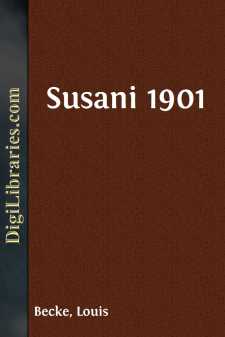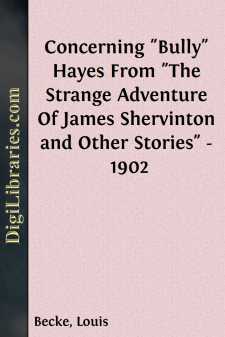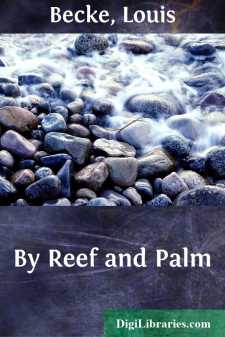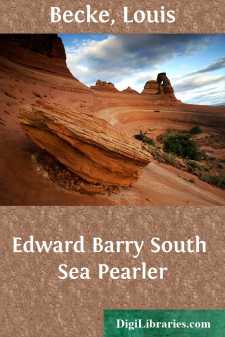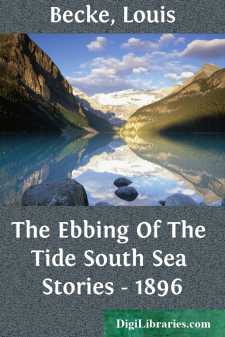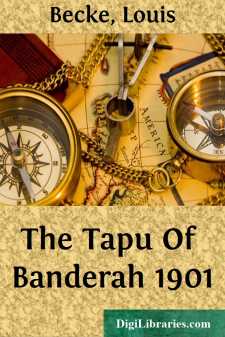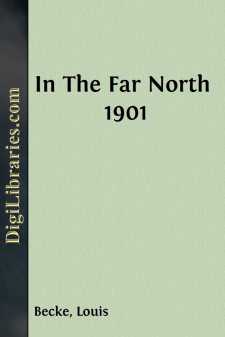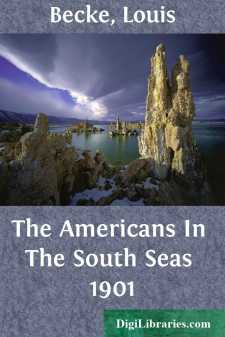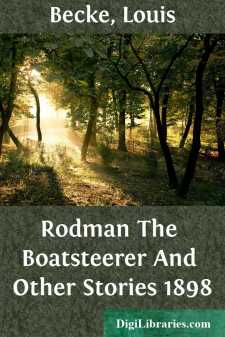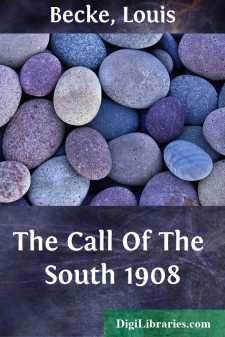Categories
- Antiques & Collectibles 13
- Architecture 36
- Art 48
- Bibles 22
- Biography & Autobiography 813
- Body, Mind & Spirit 142
- Business & Economics 28
- Children's Books 17
- Children's Fiction 14
- Computers 4
- Cooking 94
- Crafts & Hobbies 4
- Drama 346
- Education 46
- Family & Relationships 57
- Fiction 11829
- Games 19
- Gardening 17
- Health & Fitness 34
- History 1377
- House & Home 1
- Humor 147
- Juvenile Fiction 1873
- Juvenile Nonfiction 202
- Language Arts & Disciplines 88
- Law 16
- Literary Collections 686
- Literary Criticism 179
- Mathematics 13
- Medical 41
- Music 40
- Nature 179
- Non-Classifiable 1768
- Performing Arts 7
- Periodicals 1453
- Philosophy 64
- Photography 2
- Poetry 896
- Political Science 203
- Psychology 42
- Reference 154
- Religion 513
- Science 126
- Self-Help 84
- Social Science 81
- Sports & Recreation 34
- Study Aids 3
- Technology & Engineering 59
- Transportation 23
- Travel 463
- True Crime 29
Sort by:
by:
Louis Becke
A few weeks ago I was reading a charmingly written book by a lady (the wife of a distinguished savant) who had spent three months on Funafuti, one of the lagoon islands of the Ellice Group. Now the place and the brown people of whom she wrote were once very familiar to me, and her warm and generous sympathy for a dying race stirred me greatly, and when I came across the name "Funâfala," old,...
more...
by:
Louis Becke
"BULLY" HAYES! Oh, halcyon days of the sixties and seventies, when the Pacific was not, as now, patrolled by men-of-war from lonely Pylstaart, in the Friendlies, to the low-lying far-away Marshalls and the coral lagoons of the north-west; when the Queensland schooners ran full "nigger" cargoes to Bundaberg, Maryborough, and Port Mackay; when the Government agents, drunk nine days out of...
more...
by:
Louis Becke
INTRODUCTION When in October, 1870, I sailed into the harbour of Apia, Samoa, in the ill-fated ALBATROSS, Mr Louis Becke was gaining his first experiences of island life as a trader on his own account by running a cutter between Apia and Savai'i. It was rather a notable moment in Apia, for two reasons. In the first place, the German traders were shaking in their shoes for fear of what the French...
more...
by:
Louis Becke
CHAPTER I. A wild, blustering day in Sydney, the Queen City of the Southern Seas. Since early morn a keen, cutting, sleet-laden westerly gale had been blowing, rattling and shaking the windows of the houses in the higher and more exposed portions of the town, and churning the blue waters of the harbour into a white seethe of angry foam as it swept outwards to the wide Pacific. In one of the little...
more...
by:
Louis Becke
"LULIBAN OF THE POOL" A boy and a girl sat by the rocky margin of a deep mountain pool in Ponape in the North Pacific. The girl was weaving a basket from the leaves of a cocoa-nut. As she wove she sang the "Song of Luliban," and the boy listened intently. "'Tis a fine song that thou singest, Niya," said the boy, who came from Metalanien and was a stranger; "and who was...
more...
by:
Louis Becke
I ~ THE "STARLIGHT" As the rising sun had just begun to pierce the misty tropic haze of early dawn, a small, white-painted schooner of ninety or a hundred tons burden was bearing down upon the low, densely-wooded island of Mayou, which lies between the coast of south-east New Guinea and the murderous Solomon Group—the grave of the white man in Melanesia. The white population of Mayou was not...
more...
by:
Louis Becke
Jack Barrington, nominal owner of Tinandra Downs cattle station on the Gilbert River in the far north of North Queensland, was riding slowly over his run, when, as the fierce rays of a blazing sun, set in a sky of brass, smote upon his head and shoulders and his labouring stock-horse plodded wearily homewards over the spongy, sandy soil, the lines of Barcroft Boake came to his mind, and, after he had...
more...
by:
Louis Becke
Perhaps the proper title of this article should be "The Influence of American Enterprise upon the Maritime Development of the first Colony in Australia," but as such a long-winded phrase would convey, at the outset, no clearer conception of the subject-matter than that of "The Americans in the South Seas," we trust our readers will be satisfied with the simpler title. It is curious,...
more...
by:
Louis Becke
With her white cotton canvas swelling gently out and then softly drooping flat against her cordage, the Shawnee, sperm whaler of New Bedford, with the dying breath of the south-east trade, was sailing lazily over a sea whose waters were as calm as those of a mountain lake. Twenty miles astern the lofty peaks of Tutuila, one of the islands of the Samoan group, stood out clearly in the dazzling sunshine,...
more...
by:
Louis Becke
CHAPTER I ~ PAUL, THE DIVER "Feeling any better to-day, Paul?" "Guess I'm getting round," and the big, bronzed-faced man raised his eyes to mine as he lay under the awning on the after deck of his pearling lugger. I sat down beside him and began to talk. A mile away the white beach of a little, land-locked bay shimmered under the morning sun, and the drooping fronds of the cocos...
more...


